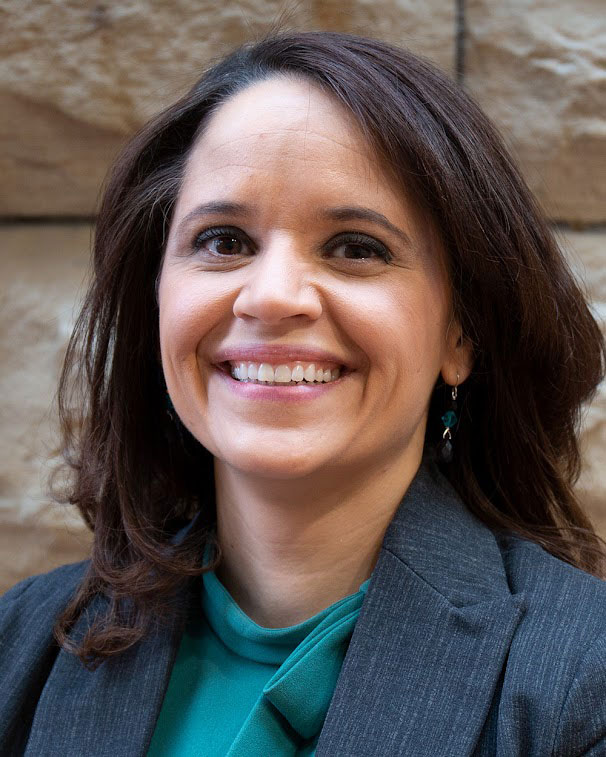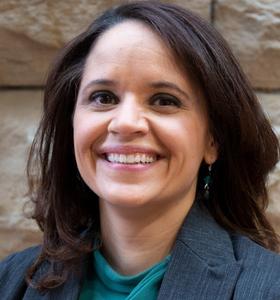
Jenn DeSantis, the new director of student advancement, has spent the last decade helping Case Western Reserve students succeed—academically, professionally and socially.
Since joining the university in May 2013 as the assistant director for academic resources, DeSantis has worked in a variety of roles within student advancement over the last 10 years before taking on the director position. While DeSantis’ new role is still focused on the success of our undergraduate students, she also works closely with campus partners in residence life and the dean of students office, and faculty partnerships through the office of undergraduate studies and the faculty senate committee on undergraduate education—in addition to maintaining a caseload of students for whom she serves as a navigator.
“I think one of the great things our office does is make sure students always have a person that they can reach out to if they’re unclear about next steps,” said DeSantis. “If they’re looking for mentorship or a deeper connection to campus, they know they can reach out to their navigator who will provide direction.”
Whether it’s answering quick clarifying questions, providing academic coaching or helping connect students with opportunities to engage with the campus and Cleveland community, DeSantis and her staff of roughly 20 navigators make sure students get the most out of their CWRU experience.
“This is a really exciting time for students,” explained DeSantis. “Yes, it’s difficult—we have a rigorous curriculum and high expectations—but helping them balance the academic challenges with all the fun and exciting opportunities that come with being a college student is so important for their experience.”
The Daily sat down with DeSantis to learn more about her career working with students, her new role and what student success looks like.
Since every student is different, how do you go about identifying their needs and connecting them with the appropriate resources?
I think it comes from building a rapport and how you approach those types of exchanges. That’s one of the items that I appreciate with the navigator role—while we are professional staff members on campus, students view us as approachable and as people they can engage with and have a conversation with. There are many students I work with who don’t even know my title—and it’s not really important for them to know! It comes from truly listening, asking questions and wanting to know about them as an individual, and the relationship really builds and develops naturally from there.
What do you value about helping students grow?
I was a first-generation college student, and part of the reason I wanted to have a career in higher education was because I felt like I didn’t have as much information or guidance as I wanted along the way. There was a little bit of stumbling and a little bit of figuring it out as I went along, so being able to help students remove some of those barriers and help them feel like they have a resource they can rely on is what I value about what I do. Seeing the progression from that first semester to their fourth year and reflecting with them on what they’ve learned is so rewarding.
What is something Navigators can help with that students may not be aware of?
Goal setting beyond the first semester after they’ve made that initial transition to life at CWRU. They understand campus, they know some of their resources, but they’re looking for feedback on their plan for their CWRU experience—and not just limited to academics and what courses they’re going to take, but exploring what they’re hoping for during their time at Case Western Reserve and how they plan to engage with the campus and Cleveland community.
Have you had a chance to stay in touch with any students after graduation?
I used to oversee the peer tutoring program, and I was advisor for the Sigma Psi sorority, and I’ve been able to keep in touch with some of those students and follow what they’re doing post-CWRU—getting married, having kids, going to medical school, getting jobs, and so on. We’ve been able to follow along with each other’s milestones through life, and maintain those connections, which is really special.
I’ve also had the opportunity to work at several commencements here at CWRU, and there’s a few students that I met with for the entirety of their four-year experience. Being able to watch them graduate after being with them from the beginning to the end was a really fulfilling experience.
What do you hope students take away from working with you and the navigators?
It differs by student, but by the end of their time at CWRU we certainly hope they’re able to actualize some of the goals that they’ve set for themselves along the way. Those goals are often academic or professional in nature, but I think campus and community engagement is a big piece as well. Of course we want them to succeed academically, but it’s so important that they enjoy themselves while they’re here on campus—balancing the academics, the research and those types of opportunities while building strong, meaningful connections with their peers. I hope they’re able to reflect on their time here and see how they’ve grown, but also genuinely enjoy the journey.

